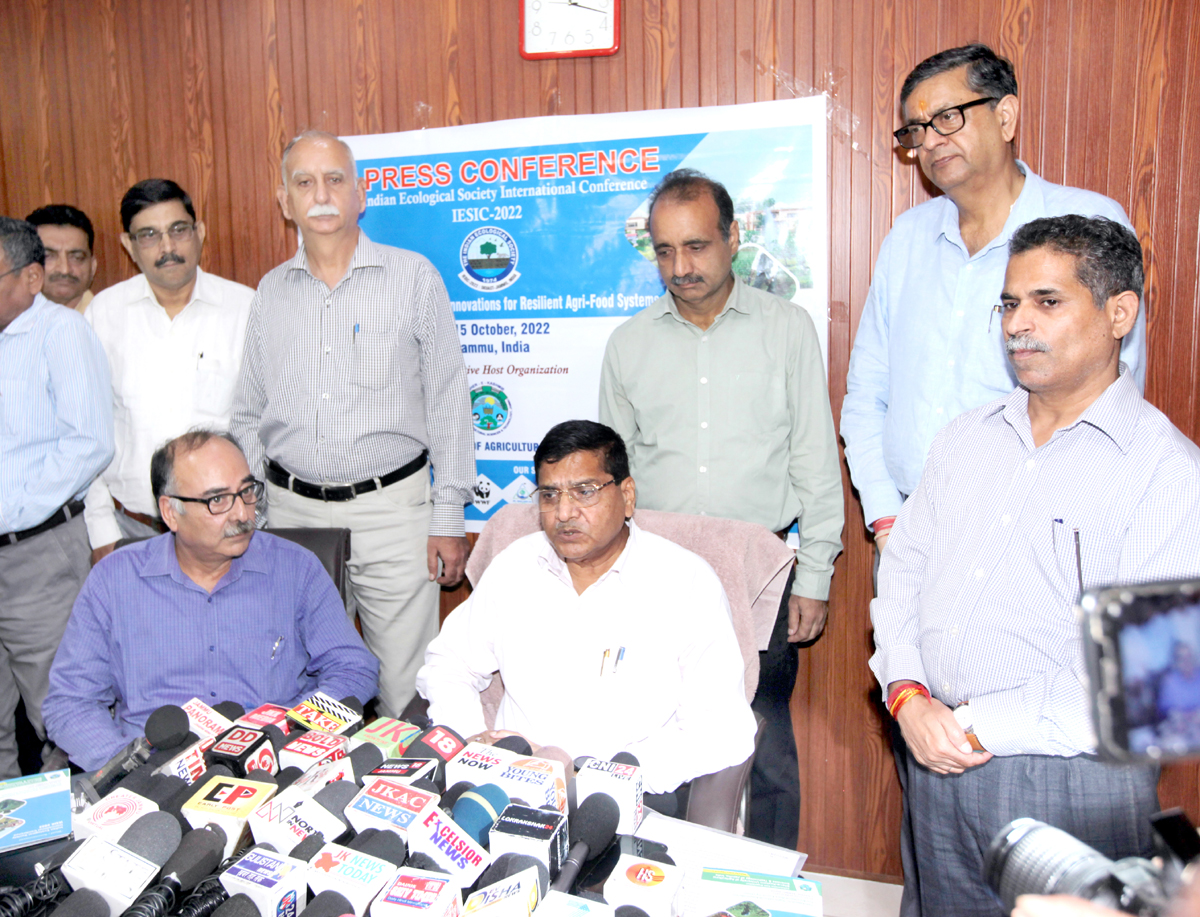
Excelsior Correspondent
JAMMU, Oct 11: SKUAST-Jammu is going to host a three day Indian Ecology International Conference, 2022 (IESIC 2022) on “Sustainable Agricultural Innovations for Resilient Agri-Food Systems” from 13 to 15 October.
Informing about the mega event during a press conference today, SKUAST-Jammu Vice Chancellor, Prof J P Sharma said that the conference will be inaugurated by Dr Jitendra Singh, Union Minister of State in Prime Minister’s Office; Personnel, Public Grievances and Pensions; Department of Atomic Energy and Department of Space.
Main objective of the three- day international conference is ‘climate change and its impacts on agricultural activities.’
Click here to watch video
“There will be five Technical Sessions and 4 Poster Sessions of the mega event. It is expected that 300 delegates from India and abroad will be participating in the event. An exhibition will also be held to demonstrate the innovative technologies generated by SKUAST-Jammu and various public and private sector agencies,” informed the Vice-Chancellor.
Stating that food security is a global issue affecting millions of people around the world and its effects have been worsened by the Covid-19 pandemic, Prof Sharma explained that as the world population continues to grow, much more effort and innovation will be urgently needed in order to sustainably increase agricultural production, improve the global supply chain and decrease food losses.
“Responding to this challenge requires a holistic view of the agriculture sector to develop sustainable, productive and resilient systems for food production, processing and distribution in order to meet the growing demand for food in India and globally,” he added.
“Land, healthy soils, water and plant genetic resources are key inputs into food production, and their growing scarcity in many parts of the world makes it imperative to use and manage them sustainably. Boosting yields on existing agricultural lands, including restoration of degraded lands, through sustainable agricultural practices would also relieve pressure to clear forests for agricultural production,” said the Vice-Chancellor and underlined the need for wise management of scarce water through improved irrigation and storage technologies, combined with development of new drought-resistant crop varieties.

